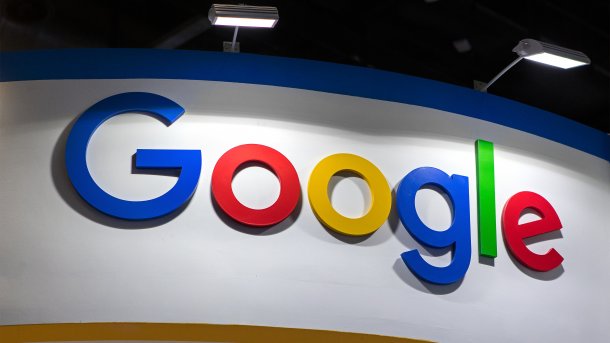All about AI: Google is reorganising
To improve the commercialization of AI, CEO Sundar Pichai has ordered Google to reorganize the company's divisions.

(Bild: testing/Shutterstock.com)
The tech company Google is restructuring departments in line with AI. Sundar Pichai, CEO of Google parent company Alphabet, spoke of a simpler division that would allow the company to act quickly. He put the whole thing under the heading "Building the future of AI".
Specifically, all teams working on the company's AI models are now to be brought together in the DeepMind department headed by Demis Hassabis. A new platform and device team is also to be created under the leadership of Rick Osterloh, Senior Vice-President of Devices and Services. This will include all employees who work on hardware and software behind Android, the Chrome browser, search and photos. The reason for this: AI. "It's no secret, is it?" Osterloh told US tech magazine The Verge. Consolidating the teams "helps us do full-stack innovation when we need to," he explained.
Head of Android changes
The previous head of the Android division, Hiroshi Lockheimer, is to devote himself to working on other products within the Alphabet Group, although Pichai did not provide any details in his announcement. Lockheimer will be replaced by Sameer Samat, the previous Vice President of Product Management for Android and Google Play.
This is the most significant change at Google since the integration of AI start-up DeepMind a year ago. Demis Hassabis founded DeepMind together with Shane Legg in London in 2010. Google bought the start-up in 2014 for around half a billion US dollars. According to Sundar Pichai, the company has focused on AI (AI first) since 2016, and Google has since integrated AI into numerous products.
Competition and embarrassments
Google is pressured from strong competition, especially from Microsoft, to launch monetizable AI tools on the market that attract customers. Despite the pioneering achievements of its own researchers, Google seemed to lag behind the competition for a long time. Critics have also taken Pichai to task for Google's fragmented structure, large-scale corporate bureaucracy and lack of a coherent plan for the introduction of generative AI, writes the Financial Times.
In addition, the company has repeatedly embarrassed itself with the failures of its own AI chatbot Gemini. In February, for example, Google had to suspend Gemini's image generation of people after inaccuracies by the AI. The AI had generated images with the faces of people of African-American and Asian origin in response to requests to generate images of German soldiers from the Second World War or the two Google founders Larry Page and Sergey Brin, among others.
Pichai also commented on the recent dismissals of Google employees who had demonstrated at work over a cloud contract with Israel in his statement: "This is a company, not a place to disrupt or alienate colleagues, to turn the company into a personal platform or to debate divisive issues and politics."
(axk)